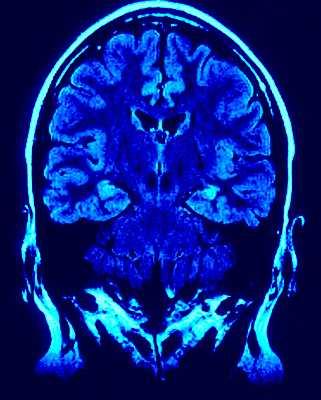
Parkinson's disease is a debilitating neurological disorder, and there has been much speculation about the possibility of symptoms of Parkinson's linked with gluten intolerance, but to date no conclusive studies have been done to examine those two particular conditions. It is, however, well established that many gluten intolerant patients experience neurological symptoms without signs of intestinal damage, and some of these symptoms are surprisingly similar to Parkinson's disease.
Parkinson's Disease
Parkinson's disease is part of a larger family of neurological disorders known as motor system disorders in which motor function gradually deteriorates through the loss of certain dopamine-producing neurons. According to the National Institute of Neurological Disorders and Stroke (NINDS), Parkinson's disease is primarily identified through a few common motor symptoms, including:
- Tremor: Uncontrollable trembling, usually of the fine motor muscles of the extremities and face
- Rigidity: Stiffness and difficulty moving the legs and torso
- Bradykinesia: Slow and labored conscious movement
- Postural Instability: Difficulty maintaining balance and coordination
Other, less common symptoms may include depression, difficulty swallowing or chewing, interrupted sleep, skin disorders and difficulty with bodily functions. Parkinson's is a difficult condition to diagnose, as there is currently no definitive blood test or brain scan that accurately identifies Parkinson's disease while ruling out other disorders. Diagnosis is normally based on a neurological evaluation and medical history.
Neurological Symptoms of Gluten Sensitivity
The British researcher Dr. M. Hadjivassiliou has written extensively on the phenomenon of Non Celiac Gluten Sensitivity, In a 2010 issue of The Lancet, Dr. Hadjivassiliou outlines the major neurological conditions that have been conclusively linked with gluten sensitivity, including:
- Gluten Ataxia: One of the most common neurological manifestations of gluten intolerance, gluten ataxia is characterized by lack of coordination, imperfect speech, tremor, and inability to control speed and power of movement.
- Peripheral Neuropathy: Damage to the nerves that carry messages from the limbs and trunk to the spinal cord and brain. Symptoms include numbness, tingling or pain of the skin or extremities and gait abnormality.
- Myopathy: Muscular weakness or poor function of muscle fibers.
- Myelopathy: Damage to the spinal cord.
- Stiff Man Syndrome: Progressive rigidity of the body.
While there are no studies in the available literature that compare the two conditions directly, there are definite parallels and it is logical to consider symptoms of Parkinson's linked with gluten intolerance is a very real possibility. Just 30 years ago, the first cases of neurological manifestations of celiac disease were reported in diagnosed celiac patients and met with skepticism. It is now commonly accepted that many patients with digestive symptoms also have neurological disorders, and experts are beginning to accept the possibility of neurological symptoms occurring independently of the classic intestinal symptoms of celiac disease.
Is Parkinsons Linked With Gluten Intolerance?
At the moment, there is no way of knowing with certainty if Parkinson's disease is linked with gluten intolerance, but there is also no harm in attempting a gluten-free diet as part of a comprehensive therapy plan. A gluten free diet is a risk-free option that does not require a diagnosis or prescription, and has potential to have a real and positive effect on your condition.
If you think gluten intolerance may be responsible for your symptoms, consider undergoing a gliadin antibody test. It is a quick, relatively painless test and will give you and your doctor an idea of how your body reacts to gluten. Alternatively, you can simply attempt a gluten elimination diet and adjust your lifestyle according to how your symptoms respond.







